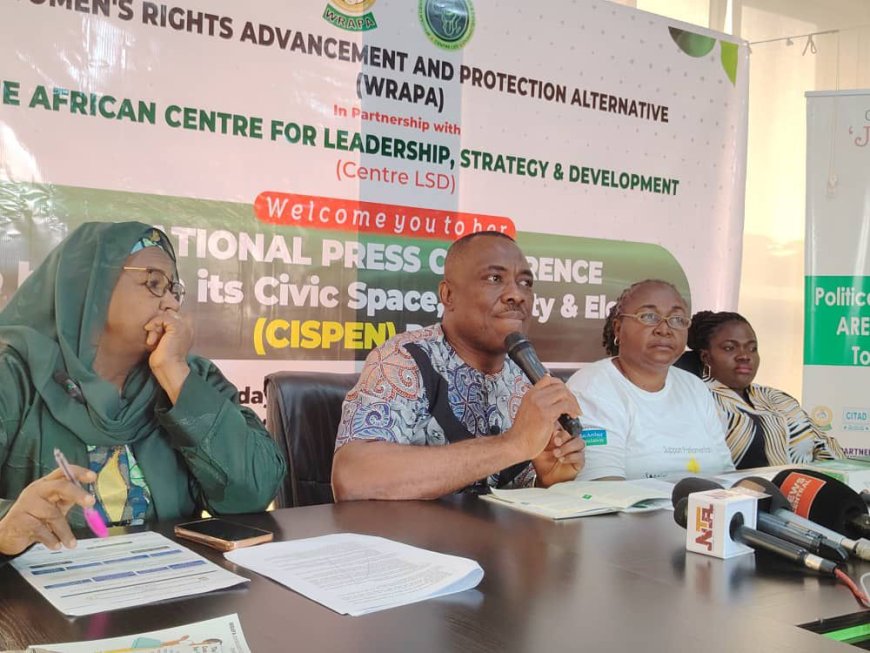Poverty, weak trust threaten Nigeria’s democracy, CSOs warn

Civil Society Organisations, The Women’s Rights Advancement and Protection Alternative and the African Centre for Leadership, Strategy and Development have called for urgent reforms to strengthen Nigeria’s democracy ahead of the 2027 general elections.
The Director of Programme at WRAPA, Yemisi Nathaniel, and the Director of Strategy, Centre LSD, Ita Otabor, stated this at a national press conference in Abuja on Tuesday.
Nathaniel said the groups, supported by the MacArthur Foundation, warned that Nigeria’s democratic progress faces three major threats, which include shrinking civic space, entrenched poverty and weak trust in the electoral process.
“The civic space is the heartbeat of democracy. When it is under siege, freedoms shrink and the foundations of participatory democracy and accountable governance are painfully eroded,” the organisers said, noting that journalists, activists and civil society actors were increasingly facing restrictions under hostile regulations.
hey also expressed concern about Nigeria’s poverty levels, saying, “Over 133 million citizens live in multidimensional poverty despite the country’s vast human and mineral resources. Poverty is often exploited during elections through inducements and vote-buying.”
On electoral trust, the organisations stressed the need for reforms in the process of appointing the Independent National Electoral Commission chairman and commissioners.
“There is a widely held perception of external influence. The process must inspire confidence and safeguard the neutrality of the electoral umpire,” they said.
The groups said recommendations from their Civic Space, Poverty and Election Project had been compiled into two policy briefs and a memorandum for constitutional alteration, which were presented to the public in August.
According to them, the next phase of the project will focus on popularising the recommendations through civic campaigns, expanding coalition-building with civil society and grassroots groups, and engaging policymakers, including the National Assembly, INEC, the judiciary and security agencies.
“The CISPEN Project has shown that democracy cannot thrive in Nigeria without civic freedoms, empowered citizens free from poverty, and credible electoral institutions,” the statement added.
Recall, on September 3,CSOs condemned the 44.51 per cent year-on-year increase in the price of cooking gas in Nigeria, warning it would deepen poverty, force households to unsafe alternatives, and harm the environment.
The National Bureau of Statistics reported that the average cost of refilling a 12.5kg cylinder rose from N14,261.57 in July 2024 to N20,609.48 in July 2025.
ActionAid Nigeria’s Country Director, Andrew Mamedu, described the surge as “a bad signal,” noting that the jump far exceeded the 22 per cent inflation rate.
“Clearly, it was a bad signal,” he said, cautioning that more families would revert to firewood and charcoal, worsening climate change and public health risks.
Similarly, Christian Aid Nigeria’s Munachi Ugochukwu urged government intervention, stressing that “stakeholders had to be brought to the table” to address pricing and industry disputes.

 admin
admin 


